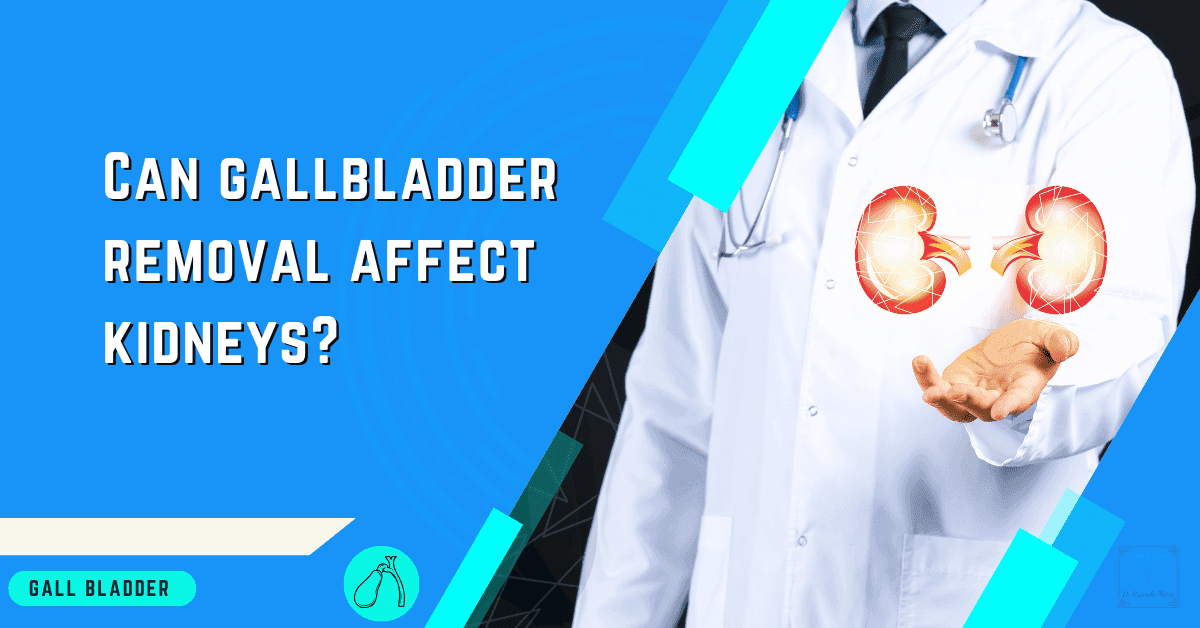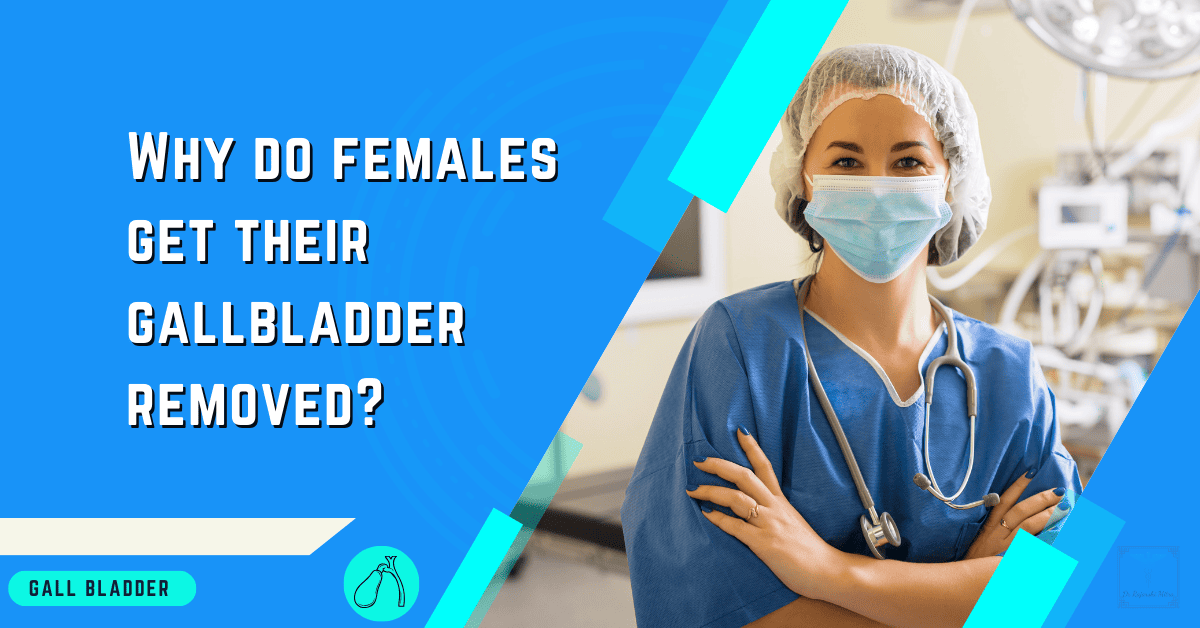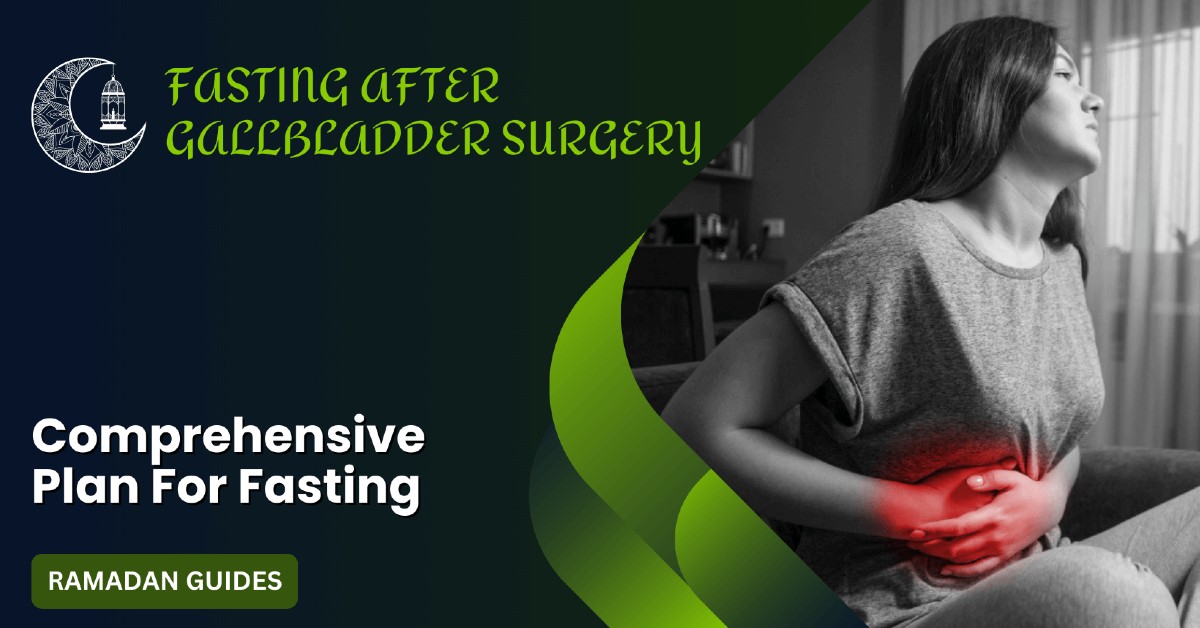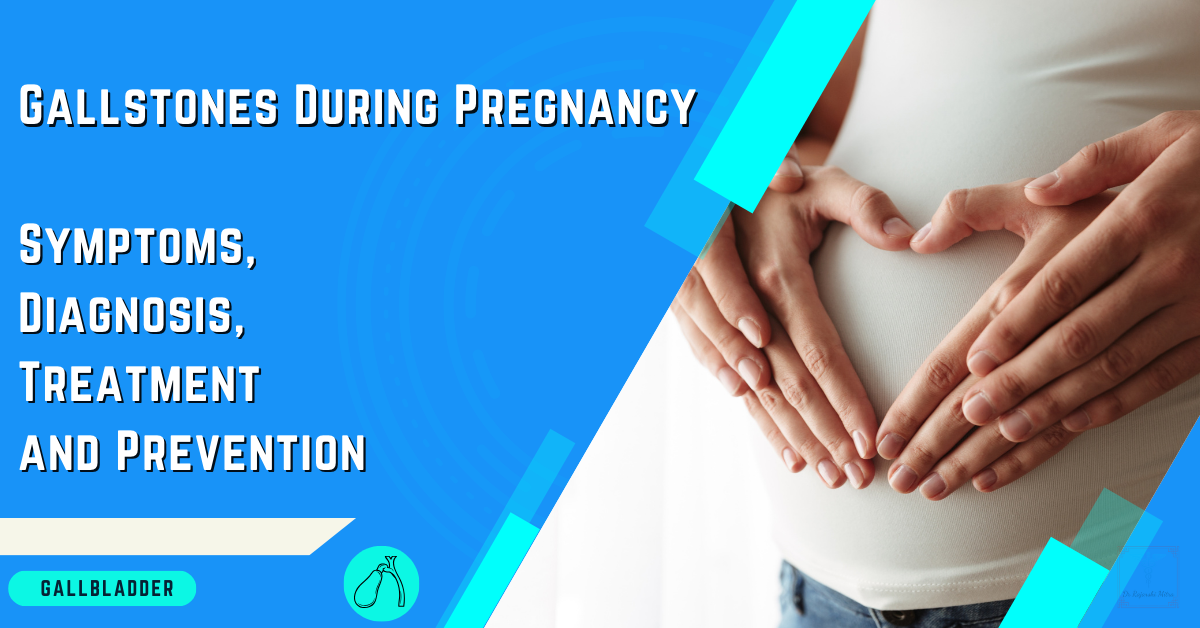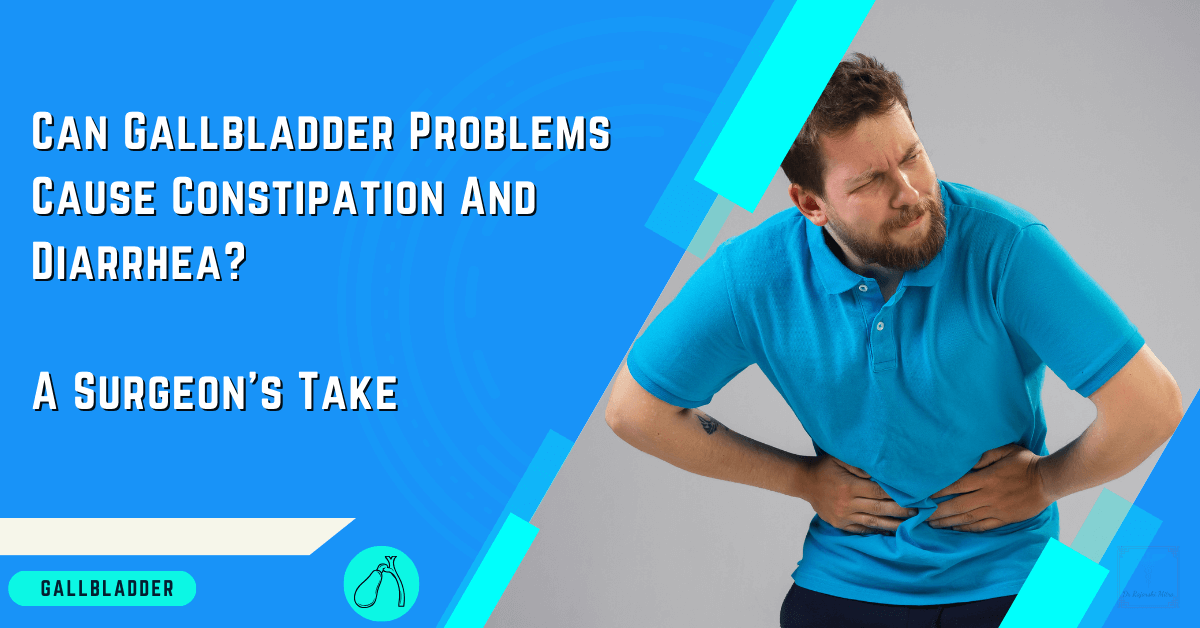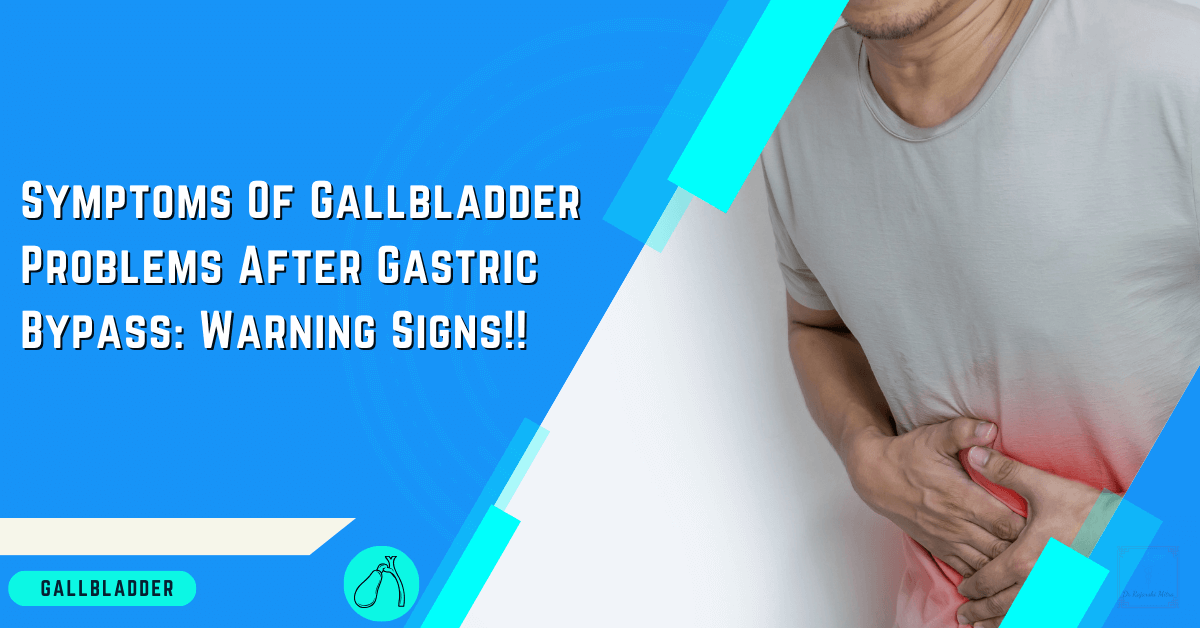The question, “Can gallbladder removal affect kidneys?” examines the interconnected nature of our bodily systems. The gallbladder and kidneys play interlinked roles in filtering waste and balancing fluid levels in the body.
So, after losing the gallbladder to disease or preventatively, patients often wonder if their vital kidney function might become impacted down the road due to altered bile circulation.
As your surgeon, I will examine both theoretical concerns and clinical evidence on this topic.
Key Points To Understand
- Distinct Roles: The gallbladder and kidneys serve different primary functions.
- Post-Surgical Risks: Potential complications, though rare, might indirectly strain the kidneys.
- Medication Impacts: Some post-surgery drugs can affect kidney function.
- Hydration Balance: Changes in bile flow might lead to dehydration risks.
- Dietary Concerns: Post-cholecystectomy diets should consider kidney health.
- Pre-existing Conditions: Underlying kidney issues can be exacerbated post-surgery.
- Regular Monitoring: Stay vigilant and monitor kidney function after gallbladder removal.

Hypothesized Issues:
Increased Oxalate Absorption
Without a gallbladder to bind oxalates, some doctors worried more absorption could increase kidney stone risks or gradual damage over time.
Higher Circulating Bile Salts
Having more bile salts entering the intestines rather than stored in the gallbladder may allow increased kidney absorption and toxicity.
Risk of Chronic Kidney Disease
Some early population studies showed a correlation between gallbladder removal and higher chronic kidney disease rates later in life.

Reassuring Clinical Outcomes Data:
No Increase in Kidney Stones
Multiple long-term studies found no greater incidence of oxalate kidney stones following cholecystectomy as compared to controls.
No Sign of Kidney Function Decline
In-depth testing of kidney filtration, flow rate, and structure changes showed no clinically significant changes vs baseline in patient status post cholecystectomy.
Confounding Factors
The apparent link between gallbladder removal and CKD disappeared once additional factors like hypertension were adequately controlled for.
The gallbladder, primarily responsible for bile storage, and the kidneys, vital for filtering blood and waste elimination, function in separate capacities.
However, any medical intervention, like gallbladder removal (cholecystectomy), can indirectly affect other organs. While the direct impact on the kidneys post-cholecystectomy is rare, certain related factors or subsequent changes might influence kidney function.

The Role of the Gallbladder and Kidneys
Distinct Functions in the Body: The gallbladder mainly stores and releases bile to aid in digestion, especially fat digestion.
In contrast, the kidneys filter blood, maintain electrolyte balance, and excrete waste through urine. Understanding their distinct roles helps in grasping potential interconnected impacts.
Post-Surgical Complications
Indirect Implications: As with any surgery, cholecystectomy carries risks. Though rare, potential complications like infections or bile leakage can indirectly affect the kidneys if toxins build up in the bloodstream, overburdening the renal system.
Medications and Kidney Function
Drugs Post-Procedure: Pain relief or other medications prescribed post-surgery can influence kidney function.
Some medications are metabolized through the kidneys and, if not properly managed, might strain or damage them.
Changes in Digestive Fluids and Hydration
Balancing Bodily Fluids: Post-cholecystectomy, bile continuously drips into the intestine, which can sometimes lead to diarrhea. Frequent diarrhea can cause dehydration, which, in turn, can affect kidney function due to reduced fluid volume.
Dietary Adjustments and Kidney Health
New Nutritional Norms: After gallbladder removal, dietary adjustments are often recommended.
High sodium or protein intake, if not monitored, can exert pressure on the kidneys. Thus, maintaining a balanced diet is crucial to ensure kidney health.
Pre-existing Conditions: A Crucial Consideration
Underlying Health Factors: Individuals with pre-existing kidney issues might experience exacerbated symptoms post-surgery, not directly due to the cholecystectomy but because of the body’s response to stress or changes in medication.
The Importance of Regular Monitoring
Post-Surgery Vigilance: Regular check-ups post-cholecystectomy can help monitor kidney function. Blood tests can measure creatinine levels, providing insights into how well the kidneys are functioning and if any interventions are required.
Final Note From Dr. Rajarshi Mitra
While gallbladder removal doesn’t directly impact the kidneys, the body’s subsequent adjustments and potential complications can influence kidney function.
Always engage with healthcare professionals post-surgery to ensure holistic health and address any concerns promptly.
Dr. Rajarshi Mitra is a patient-centered, highly-rated Specialist Laparoscopic Surgeon & Proctologist in Abu Dhabi, offering Advanced Laparoscopic Surgery, Minimally Invasive Proctology & Lasers in Proctology. He is MBBS; MS (Surgery); FIAGES; FICS (USA); Dip. Lap (France); and Dip. Hernia (APHS) with 18 years of extensive experience in Laparoscopic Surgery, Minimally Invasive Proctology and Fellowship training in Colorectal and Bariatric Surgery.

